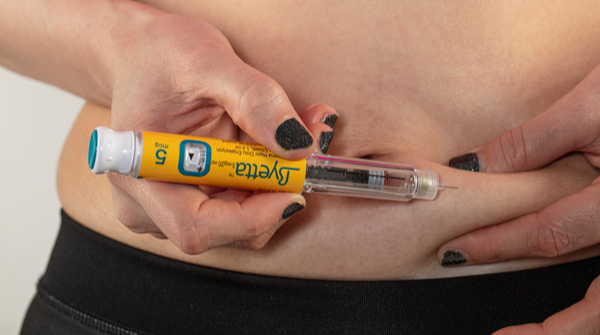Diabetes is a progressive disease that occurs when the body cannot produce or use insulin properly. Suppose you have diabetes & fail to control your blood sugar levels. In that case, you will most likely end up with some debilitating health issues like blindness, diabetic neuropathy, kidney disease, heart disease, digestive problems, nerve damage, and various other infections. The majority of these conditions are incurable. The best way to control this disease is by using common diabetic medicines.

These medications can either be taken separately or as a working combination, whichever way seems efficient enough to cure this prolonged disease. These drugs can either be taken orally, i.e., in tablet form or injected into a patient’s body. Your healthcare providers will inform you about the best way to manage your diabetes.
Here is a List of Common Diabetic Medicines
Rosiglitazone
Rosiglitazone is used with other drugs to treat type 2 diabetes. It is consumed along with a diet and exercise program. It belongs to a course of anti-diabetic medicines called thiazolidinediones.
Rosiglitazone works by increasing the body’s sensitivity to insulin, a natural substance that helps control blood sugar levels. It is essential to remember that rosiglitazone is not used to treat type 1 diabetes.

Metformin
Metformin can be used alone or with a few other medicines, including insulin, to treat type 2 diabetes. It belongs to a class of drugs called biguanides. It helps control the amount of glucose in your blood by decreasing the glucose made by your liver and the glucose you absorb from your food. Metformin also increases your body’s response to insulin. This is the most used drug for type 2 diabetes in kids & adolescents, and it does not trigger weight gain. Moreover, this is particularly suited for females who have gestational diabetes.
Sulfonylurea
Sulfonylurea is another kind of medicine that lowers the blood sugar level by causing the body to discharge stored insulin. Sulfonylureas increase the release of insulin through the stimulation of pancreatic beta-cells. It is a more potent medication for the earlier stages of type 2 diabetes when a patient has increased pancreatic beta-cell function. Sulfonylurea can be added to your medication course when metformin is not sufficient. It can also be used in those patients who cannot tolerate metformin.
Usually, these are not recommended to patients suffering from type 1 or gestational diabetes.
Amaryl
Another drug that has proven to be proficient in controlling the increasing levels of sugar (glucose) in the body is Amaryl. This medicine acts by working on the individual’s pancreas, raising the production of insulin in reaction to ingested meal times so that the body can utilise the glucose more competently and efficiently. For successful results, this drug is to be consumed once a day after having your meal.
Amaryl can only help lower blood sugar in people whose bodies produce insulin naturally.

Byetta
Byetta is an alternative drug that acts as a synthetic hormone that aids the body rouse the secretion of insulin in reaction to blood sugar levels.
Byetta works by reducing glucagon’s action, raising insulin secretion from the pancreas, and gradually slowing the glucose absorption from the gut. These actions, together, lower sugar levels and help reduce appetite. Byetta, being a mimetic drug, has an advantage over several other diabetes drugs in that it helps people lose extra weight.
Read More: How Do Diuretics Affect Blood Sugar Levels?
These are some of the commonly used diabetic drugs. Many medications are available to treat both type 1 and type 2 diabetes. They each work in different ways to help you control your blood sugar. You can consult your healthcare providers about which diabetes drug would best suit your body. They will make recommendations based on your type of diabetes, your body’s reaction to different medications, and other factors.
Download the BeatO App to connect with trusted doctors and health coaches.




